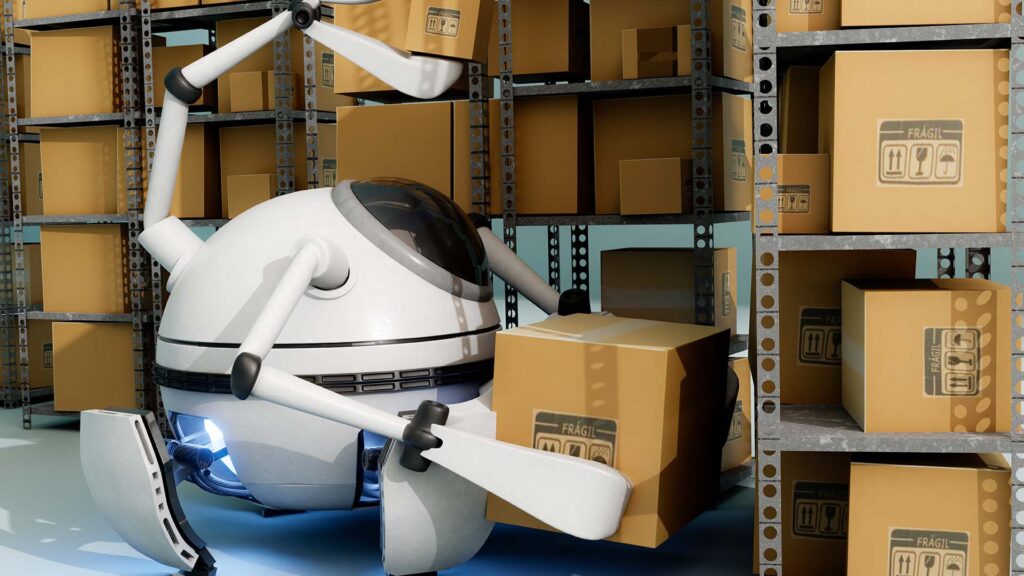What are the emerging technologies shaping the future of logistics? In today’s rapidly evolving business landscape, logistics technology has emerged as a game-changer, revolutionizing how companies manage their supply chains, optimize operations, and meet customer expectations. From advanced analytics and automation to artificial intelligence and blockchain, technology offers unprecedented opportunities to streamline processes, enhance efficiency, and drive competitive advantage. In this blog, we will explore the transformative power of logistics technology and its impact on the logistics industry.
Technology Introductions in Logistics
How has technology transformed the logistics industry in recent years? Technology has significantly transformed the logistics industry, introducing various innovations that have revolutionized the way goods are transported, managed, and delivered. These introductions enhanced operational efficiency, improving customer satisfaction, and driving innovation. Embracing these technologies allows logistics companies to stay competitive, adapt to evolving customer demands, and optimize their supply chain operations. As technology continues to advance, we can expect further innovations that will reshape the logistics landscape. Let’s explore some of the key technology introductions in logistics:
Advanced Analytics and Big Data
Advanced analytics and big data have transformed logistics by giving organizations real-time insights into their supply chains. By leveraging data from various sources such as sensors, GPS devices, and transactional systems, companies can gain visibility into critical metrics, anticipate demand patterns, optimize inventory levels, and improve route planning. Data-driven decision-making enables organizations to proactively identify bottlenecks, optimize resource allocation, and enhance operational efficiency.
Automation and Robotics
Automation and robotics have revolutionized traditional logistics processes, increasing speed, accuracy, and productivity. Technology-driven automation reduces manual labor, minimizes errors, and enables faster order fulfillment, from automated warehouse systems and robotic picking to autonomous vehicles and drones. Automated systems can handle repetitive tasks, freeing human resources to focus on more complex activities. This can enhance operational efficiency, reduce costs, and more importantly customer satisfaction.
Internet of Things (IoT)
The Internet of Things (IoT) has enabled seamless connectivity and real-time communication across the logistics ecosystem. IoT devices, such as sensors and RFID tags, provide granular visibility into inventory, monitor temperature and humidity conditions, and track shipments throughout the supply chain. This level of connectivity enables organizations to optimize inventory management, track assets in real time, and ensure compliance with quality and safety standards. IoT technology enhances supply chain transparency, reduces the risk of stockouts or overstocking, and enables proactive equipment maintenance.
Artificial Intelligence (AI) and Machine Learning (ML)
Artificial Intelligence and Machine Learning have emerged as powerful tools in logistics, enabling organizations to automate complex tasks, optimize routing and scheduling, and improve demand forecasting accuracy. AI-powered algorithms can analyze vast amounts of data, learn from patterns, and make data-driven predictions. This enhances operational efficiency, enables dynamic route optimization, and helps organizations respond to changing market conditions. AI and ML technologies also enable predictive maintenance, minimizing equipment downtime and reducing costs.
Blockchain Technology
Blockchain technology is revolutionizing supply chain transparency, traceability, and trust. By providing a decentralized and immutable ledger, blockchain ensures secure and transparent transactions across the supply chain. This technology enhances visibility, authenticity, and accountability, particularly in supplier management, product provenance, and contract execution. Blockchain enables organizations to track and trace products from origin to destination, streamline trade documentation, and reduce fraud or counterfeiting risks.
Augmented Reality (AR) and Virtual Reality (VR)
AR and VR technologies are being used in logistics for various purposes. AR assists in warehouse operations by overlaying digital information onto the physical environment, and guiding workers in the picking and packing processes. VR facilitates remote training, allowing employees to undergo virtual simulations of complex scenarios, improving safety and operational efficiency.
Significance of logistics technology

What is the significance of implementing logistics technology solutions? Let us have a look at the significance of implementing this in the logistics field.
Enhanced Efficiency and Productivity
One of the primary benefits of logistics technology is its ability to streamline operations and enhance efficiency. With the help of advanced software systems, companies can automate various tasks such as order processing, inventory management, and route optimization. This automation saves time, reduces the likelihood of errors, and improves overall productivity. By leveraging technology, companies can handle larger volumes of shipments, track them in real time, and make data-driven decisions to optimize their supply chain processes.
Improved Visibility and Tracking
Logistics technology provides unprecedented visibility into the movement of goods throughout the supply chain. Through the use of tracking technologies such as GPS, RFID, and barcode scanning, companies can monitor shipments at every stage, from the warehouse to the final destination. This level of visibility enables accurate forecasting, effective inventory management, and timely delivery. Customers also benefit from this increased transparency as they can track their orders, receive updates, and have peace of mind knowing where their products are at all times.
Optimized Inventory Management
Effective inventory management is crucial for the success of any logistics operation. Logistics technology offers advanced inventory management systems that provide real-time visibility into inventory levels, demand patterns, and stock replenishment needs. By leveraging this technology, companies can optimize inventory levels, reduce carrying costs, prevent stockouts, and ensure that the right products are available at the right time. This leads to improved customer satisfaction, reduced wastage, and enhanced profitability.
Data-Driven Decision Making
Logistics technology generates vast amounts of data that can be leveraged to make informed business decisions. Through data analytics, companies can gain valuable insights into their supply chain performance, identify bottlenecks, and uncover areas for improvement. Companies can make data-driven decisions that drive operational efficiencies and customer satisfaction by analyzing key metrics such as delivery times, transportation costs, and order accuracy. Additionally, advanced analytics tools can help identify trends, forecast demand, and optimize routes, leading to cost savings and improved service levels.
Conclusion
In conclusion, Logistics technology has become a driving force behind supply chain innovation and operational excellence. From advanced analytics and automation to AI, IoT, and blockchain, these technologies offer immense potential for businesses to optimize their operations, improve customer satisfaction, and gain a competitive edge. Embracing logistics technology enables organizations to enhance visibility, streamline processes, reduce costs, and adapt to evolving market demands. As the logistics industry continues to evolve, leveraging the power of technology will be a crucial factor in staying ahead of the curve and achieving long-term success.
In this era of logistics technology, Galaxy Freight stands at the forefront, leveraging the power of digital solutions to deliver exceptional services. With their extensive knowledge and experience, Galaxy Freight adopts cutting-edge logistics technology to optimize processes, enhance visibility, and provide their clients with seamless supply chain solutions. Their commitment to staying abreast of the latest industry trends ensures that they continue to provide innovative solutions that meet the evolving needs of their customers.
Contact us today to learn more about how Galaxy Freight can help you embrace logistics technology and transform your supply chain.



